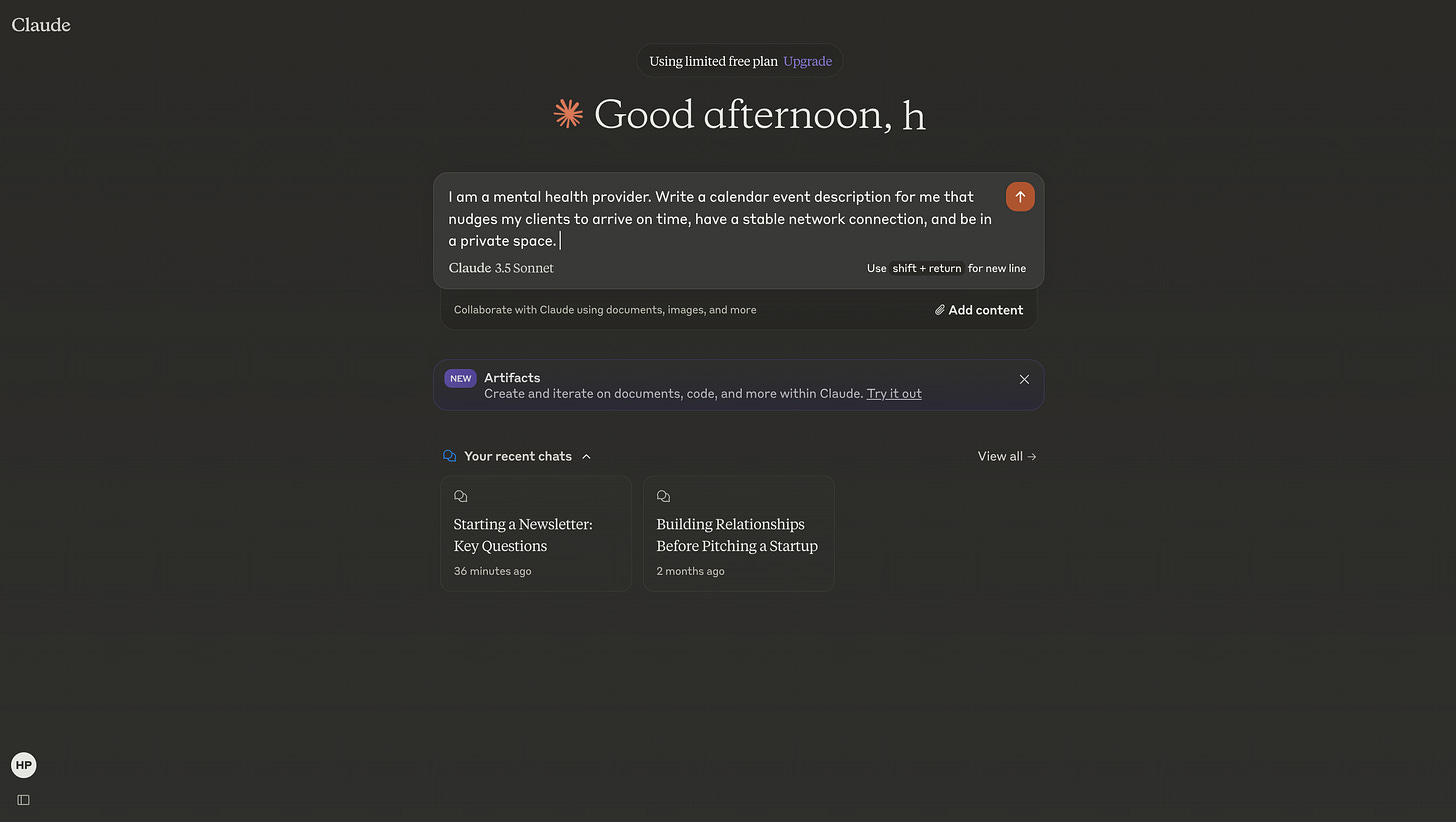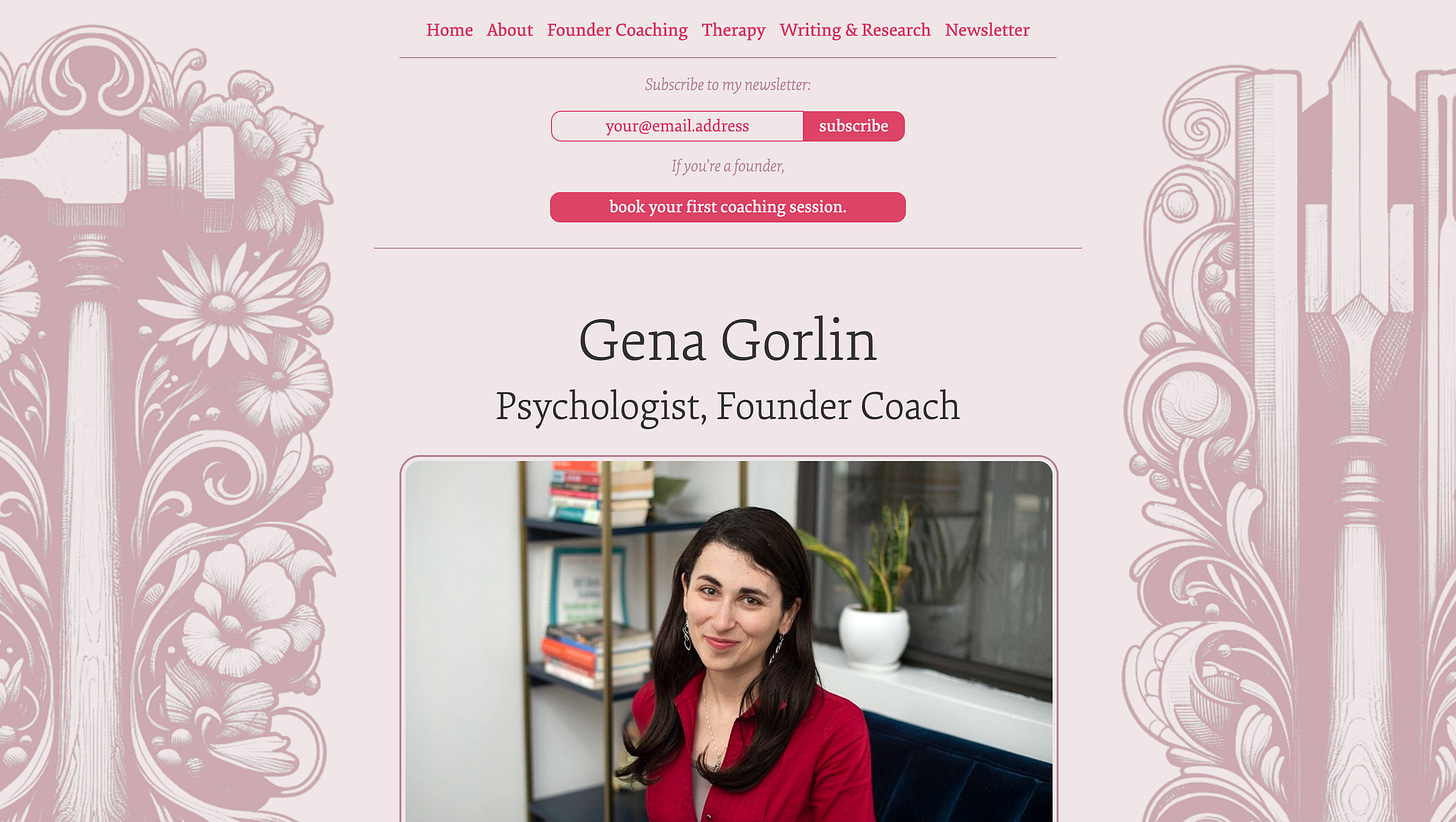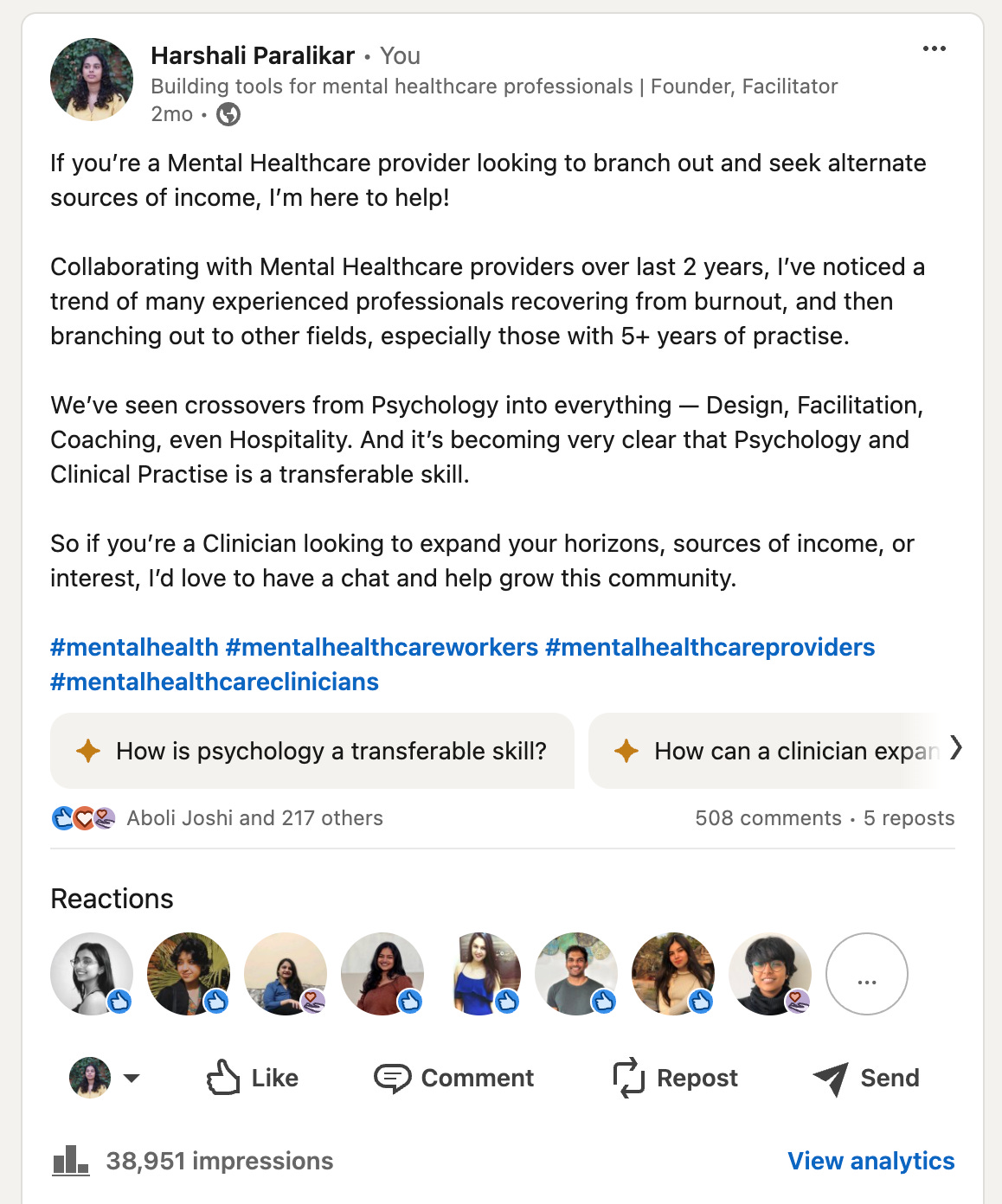Digest #1 – Career diversification, from mental health to everything else
When mental health providers apply their skills to new areas, unique practises are invented
👋 Hi! I’m Harshali and you might recognise me from this post a couple of months ago –
I’ve been active in the corridor between technology and mental health for the last five years and yet this was the first time I witnessed enthusiasm for this topic en masse!
I come from the tech industry where we are regularly the recipient of inordinately large sums of money, opportunities, and knowledge resources. I want to redirect some of it to the clinical community. Rechannelling it won't deplete it, there's enough for us all.
How do mental health careers diversify into tech?
😓 Increasing case-load, slim pay, sparse and expensive guidance – all resulting in surmounting burnout means more and more mental health care providers are seeking to complement their therapy income with a tech income. The question I often get asked is – where do I get started?!
Mental healthcare providers develop a gamut of people related skills that translate into role specific strengths when they seek to move into other disciplines.
For example, hours of conversational stamina and strong mentalizing capacity can set you up well for a role in Sales or Customer Service (where you speak with many clients or users in a day), or a role in User Research (where you interview select users to gain insight on product),
Verbal and non-verbal communication prowess, skilled and patient crisis intervention, systemic and organised thinking can set you up for a role in Program Management, and even Product Management.
It is a matter of you identifying your non-clinical strengths, your areas of interests and then seeking people who might be relevant to you (I can help with this last part!)
➡️ One role an mH provider could do
In tech, people love to hire horizontally aka across disciplines. Tech is a background agnostic, skill rewarding industry. An interdisciplinary career means you find the value in what you provide and pitch yourself to those who you want to work with. In this section, I’ll cover one role every week and explain what it entails, how to go about applying for it.
📌 UX writing
UX writing, or User Experience writing, is the practice of crafting the text that users encounter while interacting with software, websites, or apps. UX writing is about creating clear, concise, and helpful words that guide people through using a digital product. It includes things like button labels, menu items, error messages, instructions, tooltips, onboarding text, and confirmation messages. The goal of UX writing is to make the user's experience smoother and more intuitive.
As an mH provider, UX writing freelance
If you’re interested in UX writing and have further specific questions, I’d love to answer them!
🧰 One new tech tool and how to use it in the mH space
There’s a tonne of innovation happening in tooling for mental health providers, except the irony is that it’s knowledge stays in local communities and rarely ever crosses beyond. In this section I’ll cover one new tool every column and present possible applications.
📌 Large Language Models (LLMs)
There’s big buzz around AI and lots of information (it will take over clinical jobs, it will gain its own intelligence) and the concern feels larger than life. In case you missed it – LLMs are advanced AI programs that understand and generate human-like text. Think of them as very smart digital assistants that have read a huge amount of text from the internet and books, and can use this knowledge to understand and respond to questions or prompts.
LLMs can be handy for you when you need a staring point for a writeup, or when you need to refine something you’ve already written. To note however – LLMs don’t take in private information about you or your client, if you simply don’t give them any! Avoid sharing any personally identifiable information and you should be alright. You could try the most robust, freely available LLMs – ChatGPT, Claude, and Perplexity for starters.

Is there a specific task or a context for which you’d like to learn how to use LLMs better? Write to me with your questions and I’ll answer them for everyone.
🚴♀️ One inspiring journey in tech-mH
There are so many who came before us. In this section, you can find one person’s story and how to navigated beyond the usual.
📌 Gina Gorlin
Gina Gorlin is a psychologist and founder trainer. Other than seeing clients, she's specifically interested in the overlap of creativity and entrepreneurship. Her alt practice is that she coaches founders, and C-Suit people to remain mentally fit and thriving. I came across her when she attended the Demo-day (an end of program day where founders pitch to investors) organized by Entrepreneurs First/ EF (a startup accelerator). Here's a succinct gist of the work she does.

Is there someone you think I should feature in this column? Tell me more about them by writing to me via this button below!
If you’re a mental health provider and you’d like to speak with me about ideas in tech+mH or your practise and how to diversify, write to me at harshali.para@gmail.com or book my calendar.
If you work in tech and are interested in contributing in the mental health space via your services, resources, funding, or absolutely anything else – I’d be happy to chat and connect you to the right people! Write to me at harshali.para@gmail.com or book my calendar.
Thats all for this week, see you next Thursday!


